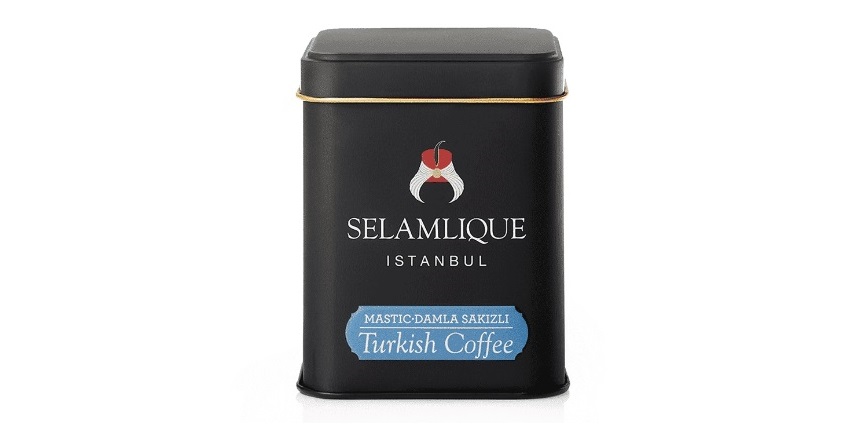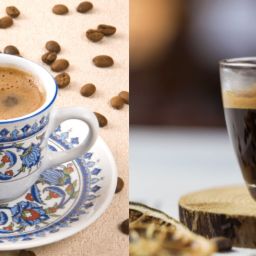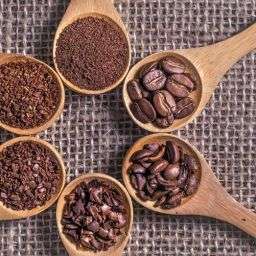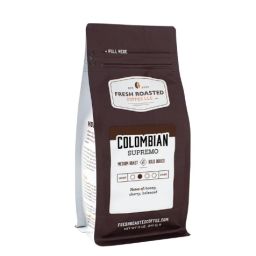
Mastic Turkish Coffee isn’t just a drink; it’s a journey into a world where tradition meets taste in a cup brimming with history. This unique beverage stands out for its rich aroma and distinctive flavor profile, owed largely to mastic – a resin harvested from the mastic tree, native to the Mediterranean.
When added to Turkish coffee, mastic transforms the already beloved drink into something extraordinary. Its slightly sweet, pine-like aroma and the velvety texture it lends to the coffee make every sip a luxurious experience. Mastic Turkish Coffee is not only a testament to the rich cultural tapestry of Turkey but also a beloved ritual that invites enthusiasts to savor life, one cup at a time.
Key Takeaways
- Rich Heritage: Discover the origins of Turkish Coffee in the Ottoman Empire and its enduring cultural significance, from social gatherings to wedding customs.
- Unique Flavor Profile: Explore how mastic, a resin with a pine-like aroma, enhances the coffee’s flavor, making it a distinct variant among coffee aficionados.
- Health Benefits: Uncover the various health advantages of mastic, from promoting oral health to aiding digestion.
- Preparation and Serving: Learn the traditional methods of preparing and serving Mastic Turkish Coffee, ensuring the perfect blend of aroma, flavor, and foam.
- Cultural Significance: Understand the role of Mastic Turkish Coffee in Turkish proverbs, language, and daily life, highlighting its deep-rooted importance in Turkey’s cultural identity.
What is Mastic Turkish Coffee?
Mastic Turkish Coffee is a symphony of tradition and taste, uniquely standing out in the vast world of coffee. At its core, this special variant employs mastic resin, a natural gum harvested from the mastic tree, primarily found in the Mediterranean region. The use of mastic in coffee is a tradition that dates back centuries, particularly cherished in Turkish culture for its distinctive contribution to the coffee’s flavor profile.
Visually, mastic resin presents itself as a clear, pale yellow substance, with a consistency that can vary from a thick syrup to a more solid, wax-like texture. Its taste is as intriguing as its appearance—slightly sweet and pine-like, with a hint of bitterness reminiscent of pine resin. When mastic is added to Turkish coffee, it infuses the brew with a unique aroma and flavor that’s hard to find in any other beverage. Think of a nutty, smoky, and earthy melody that dances on your taste buds, leaving a slight thickness that transforms the coffee into a velvety treat.
Preparing Mastic Turkish Coffee involves a meticulous process where the mastic resin is first gently heated, then mixed with either sugar or honey to create a paste-like substance. This mixture is then combined with finely ground coffee beans and water before the brewing begins. The result? A coffee experience that’s not just about the taste but also the aroma. The addition of mastic elevates the ordinary cup of Turkish coffee to something extraordinary, enhancing its flavor without overpowering the coffee’s natural essence.
Mastic’s magic doesn’t stop at flavor enhancement. It also contributes to the coffee’s texture, adding a luxurious, velvety feel that makes every sip more enjoyable. Moreover, mastic helps in reducing the bitterness and acidity often associated with coffee, making Mastic Turkish Coffee a smoother, more palatable choice for those sensitive to the harsher aspects of traditional coffee.
The Rich History of Turkish Coffee
Turkish coffee’s journey begins in the 16th century within the opulent courts of the Ottoman Empire, making it one of the world’s oldest coffee brewing methods. Its introduction to Europe is a tale of cultural exchange, as it reached the continent by the mid to late 17th century, captivating the British and French alike with its exotic allure. The opening of the first coffee house in Britain by an Ottoman Jew marks a significant milestone in coffee’s global journey, highlighting the role of Turkish coffee in bridging cultures.
Beyond its rich taste, Turkish coffee holds a profound cultural and social significance. It is not merely a beverage but a medium of social bonding and hospitality. Its role in fortune-telling, known as tasseography, where the coffee grounds left after drinking are used to predict the future, adds a mystical aspect to its consumption. Moreover, Turkish coffee plays a pivotal role in traditional wedding customs, serving as a test of the groom’s character and patience in a ritual that strengthens bonds and marks significant life milestones.
Cultural Significance and Variants
Mastic Turkish Coffee is a testament to Turkey’s rich heritage, seamlessly blending into the fabric of Turkish life and language. For instance, the word “Kahvaltı,” meaning breakfast, literally translates to “before coffee,” illustrating coffee’s integral role in Turkish daily routines. This variant, with its unique addition of mastic, highlights the diversity within Turkish coffee traditions, offering a distinct flavor profile characterized by its aromatic and velvety essence.
The landscape of Turkish coffee is vast, with several variants each bearing its own unique character. From the light and almond-sprinkled “Cilveli Kahve” of Manisa to the dark and potent “Mırra Kahvesi” beloved in the south, these variations showcase the versatility and adaptability of Turkish coffee.
Health Benefits of Mastic Turkish Coffee
Mastic, the star ingredient in Mastic Turkish Coffee, isn’t just known for its unique flavor; it’s also celebrated for its numerous health benefits. One of its most appreciated advantages is its contribution to oral health. Mastic helps in eradicating harmful bacteria in the mouth, fighting cavities, and preventing gum diseases. It doesn’t stop there; mastic aids digestion, offering relief from indigestion, gas, and even stomach ulcers.
Its health benefits extend to reducing cholesterol levels, aiding postpartum uterus recovery, and combating bacteria and fungi responsible for unpleasant odors. Moreover, mastic contributes to the treatment of asthma and bronchial diseases, making Mastic Turkish Coffee not only a delight for the senses but also a boon for well-being.
Preparation and Serving Traditions
Preparing Mastic Turkish Coffee is an art that yields a cup rich in flavor and tradition. Start by adding water, finely ground coffee, and mastic to the cezve (a special coffee pot). Stir the mixture until the mastic dissolves completely. Place the cezve over low heat until it’s near boiling, then remove it momentarily to let it calm. Repeat this process two or three times to cultivate the desired foam—a hallmark of a perfectly brewed Mastic Turkish Coffee.
FAQs
What are the best brands for Mastic Turkish Coffee? While preferences can vary, brands like Hafiz Mustafa and Dünyası Coffee are highly recommended for their quality, flavor, and adherence to traditional recipes.
How many calories are in Mastic Turkish Coffee? Mastic Turkish Coffee is surprisingly low in calories. A typical serving prepared with a small teaspoon of coffee contains only about 12 calories, making it a guilt-free indulgence for those watching their calorie intake.
How does Mastic Turkish Coffee differ from regular Turkish coffee? The key difference lies in the addition of mastic, a resin that infuses the coffee with a unique aroma and flavor profile—nutty, smoky, and slightly sweet. Mastic also adds a velvety texture to the coffee, distinguishing it from the more straightforward, bold flavors of regular Turkish coffee.
Final Thoughts
Mastic Turkish Coffee is more than just a morning or after-meal drink; it’s a celebration of tradition, flavor, and communal bonds. Its unique blend of rich coffee and mastic resin offers a taste that’s both comforting and exotic, inviting coffee lovers to explore the depths of Turkish coffee culture.









